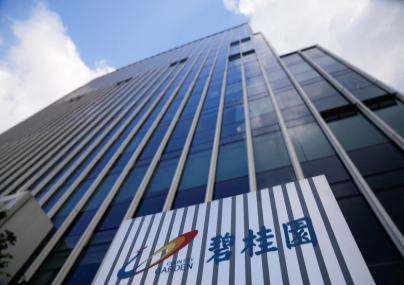
In early 2023, offshore jurisdictions like Jersey, Cayman Islands and British Virgin Islands passed legislation that indicated they were welcoming virtual assets service providers (VASPs). Lawyers share that this will allow VASPs to anchor in the said jurisdictions despite increased regulatory burdens, compliance costs and stringent penalties.
Offshore jurisdictions are an attractive prospect to virtual asset service providers (VASPs) for the same reasons they’ve always been attractive: Favourable regulatory environments, well-established financial service markets, tax-friendly policies, and strategic geographic locations. But global scrutiny over virtual assets, and lessons from economic crises across highly regulated markets have made policymakers weary of decentralised, digital finance practitioners, leading to increased regulation of VASPS in top offshore jurisdictions, including the British Virgin Islands, Cayman Islands and Jersey.
The Financial Action Task Force, an intergovernmental organisation to develop policies to combat money laundering, terrorism financing and proliferation financing, has taken a keen interest in regulating VASPs in offshore jurisdictions, releasing standards to be met by business participants along with a system of checks and compliances to be put in place.
Lawyers at offshore-focused international law firm Ogier are helping clients navigate new regulations and compliance burdens, associated costs and business policy changes, as well as advising incoming VASPs on the most seamless ways to do business in Jersey, the British Virgin Islands and the Cayman Islands. They say that as these offshore jurisdictions look to meet, and, in some cases, exceed these standards, the level of reliability and trust is set to increase without stifling growth or disrupting business.
JERSEY
In Jersey, operating a virtual asset (VA) business requires compliance with its anti-money laundering (AML), countering the financing of terrorism (CFT) and countering proliferation financing (CPF) regimes. All VA activities and VASPs are now required to apply to the regulator in Jersey, the Jersey Financial Services Commission (JFSC), for registration for supervision for AML purposes before commencing any VA activities.
“AML is of course not just a gating item, the JFSC has the ongoing right to visit the applicant, to review transactions, to review policies and procedures and relevant date to make sure businesses continue to comply with their AML obligations.”
— Alexander Curry, Ogier
Alexander Curry, a Jersey-based partner at Ogier, says that applicants are required to provide a business risk assessment, policies and procedures for dealing with the AML risk and be able to demonstrate compliance readiness. “AML is, of course, not just a gating item; the JFSC has the ongoing right to visit the applicant, to review transactions, to review policies and procedures and relevant date to make sure businesses continue to comply with their AML obligations,” Curry explains.
“In most cases, this will require an additional notification to the JFSC, but it will likely also mean an increase in administrative costs and ongoing compliance with recruitment and of additional personnel, training, or amendments to specific policies and procedures. Relevant entities will need to implement a risk-based approach to VAs, which includes collecting and analysing relevant customer data such as IP addresses and detection of IP address anonymisation, among other methods for reducing risk. Regulators will need to be shown evidence of the AML measures that entities handling virtual assets are putting in place. The use of a correctly configured blockchain analytics tool to screen wallets and monitor transactions along with improvements to CDD checks provides an important part of that evidence,” Curry adds.
“Criminal penalties can be levied in Jersey for breach of the law, and there is very little flex within the system for those who do not comply,” he says.
That being said, the country’s regulators work closely with industry participants to make the compliance process as smooth as possible. “The Innovation Team at the JFSC works with industry stakeholders and is very approachable and prepared to work collaboratively with applicants and their advisers. Fees for registration for supervision are also competitive and materially lower than some of the other offshore jurisdictions,” Curry says.
“It is also likely that further regulation and legislative changes will be implemented in the future as the VA sector becomes more sophisticated. Entities will have to be prepared to adapt and move quickly to ensure ongoing compliance,” he adds.
BRITISH VIRGIN ISLANDS
The BVI Virtual Assets Service Providers Act, 2022 (BVI VASPA), which came into force in February 2023, empowers the BVI Financial Services Commission (BVI FSC) to regulate the carrying on by BVI companies of virtual assets services while still fostering an environment in which businesses can innovate and be successful.
The BVI VASPA defines a virtual asset as “a digital representation of value that can be digitally traded or transferred and can be used for payment or investment purposes.” The act provides a registration and licensing regime for any person offering a “virtual asset service” in the course of a business. David Mathews, a managing associate at Ogier’s BVI office, says the BVI VASPA represents a well-balanced approach to virtual asset regulation by the FSC. “For the most part, it sticks close to FATF recommendations in the space, focussing in a practical manner on AML and other misuse concerns, but without implementing harsh, blanket regulation across all aspects of virtual asset activity.”
Unlike other offshore jurisdictions, the issuance by a BVI entity of a virtual asset is not included in the definition of virtual assets service, and so, to the extent that a BVI company is involved in a crypto project solely as the issuer of tokens, the BVI VASPA would not require the entity to be regulated in respect of that activity, says Mathews.
“The BVI AML Code has implemented ‘the travel rule’ and any licensed VASP will need to undertake KYC on its clients and any persons to whom they transfer virtual assets. Under the BVI AMLR, this is mandatory for any transaction valued at $1,000 or more, or if the transaction has any characteristics that would make it high risk.”
— David Mathews, Ogier
“For this reason, we are seeing many blockchain projects based in Asia choosing BVI as the place of incorporation for the token issuer,” he adds. Mathews says that the BVI VASPA increases reporting and compliance requirements on VASPs on the island, including annual submission to the BVI FSC of audited financial statements and a report detailing the level of compliance by the entity with its obligations under the BVI VASPA. The entity is also required to have a compliance officer, approved by the BVI FSC, who is responsible for ensuring compliance by the entity with the requirements of the BVI VASPA. VASPs will also be subject to the provisions of the BVI Anti-Money Laundering Regulations (the BVI AMLR) and the BVI Anti-Money Laundering and Terrorist Financing Code Practice (the BVI AML Code).
“The BVI AML Code has implemented ‘the travel rule’ and, as such, any licensed VASP will need to undertake KYC on its clients and any persons to whom they transfer virtual assets. Under the BVI AMLR, this is mandatory for any transaction valued at $1,000 or more, or if the transaction has any characteristics that would make it high risk (for example, the involvement of a politically exposed person),” says Mathews. Compliance with the AML regime and the travel rule poses the greatest compliance challenge to a VASP in BVI, explains Mathews. “Not only can this be challenging to perform on a practical level, there is also often significant resistance in the market to providing necessary verification documents,” he says. To ensure a smooth transition into compliance with the new regulations with minimal disruption to growth and innovation, the BVI VASPA incorporated a six-month grandfathering period during which time persons who were already operating a virtual assets business using a BVI entity were able to continue operating before they had to apply for a licence. And after the licence application was made, these entities were able to continue operating until the BVI FSC finally approved or refused to grant a licence to them.
The availability of experienced financial and legal advisors on the islands also eases the risk of business disruption from the increased compliance burdens.
Mathews says that as a matter of best practice, it is always advisable to engage the services of a specialist AML advisor, and legal counsel to assist any licensee under the BVI VASPA to comply with its obligations under the BVI AMLR and BVI AML Code. “This will ensure that the client is able to comply with its obligations, and has the confidence that it is doing so, while freeing up the time and energy of its management team to focus on delivering and developing their product,” Mathews advises.
“The single most common pitfall for clients in the virtual assets space that we have seen has been failing to involve BVI specialist advisors until after the business is up and running; by this time, many common mistakes will have already been made, and so time and energy are spent in rectification, rather than in further progressing and developing the business,” Mathews cautions.
CAYMAN ISLANDS
The Cayman Islands have been regulating virtual assets and their service providers since 2020 under the Virtual Assets (Service Providers) Act in two phases, says Chris Wall, an Ogier counsel in the Cayman Islands. Phase 1 focuses on AML/CFT compliance, supervision and enforcement, and other key areas of risk. During this time, entities engaged in or wishing to engage in virtual asset services must be registered with the Cayman Islands Monetary Authority (CIMA), the responsible authority under the Cayman VASPA. Phase two refers to the licensing approval process that will begin when the relevant provisions relating to licensing of the Cayman VASP Act come into effect.
Wall expects that Phase 2 will also provide for the approval process for virtual asset issuances. “Once Phase 2 is in effect, businesses providing custodial services of virtual assets and businesses that operate or intend to operate a virtual asset trading platform will require a licence from, and be regulated by, CIMA. All other persons carrying on or intending to carry on virtual asset services will require registration.” Wall says.
“It is expected that due to the nature of such services being undertaken by Cayman VASPs, strict prudential requirements will be imposed to ensure customers and their assets are adequately safeguarded under the Phase 2 regime,” he adds.
“Given the shift to ensure more credibility to the virtual asset market, the fact that there are high standards required in Cayman, is in itself an attractive proposition for virtual asset service providers to be regulated in the Cayman Islands.”
— Chris Wall, Ogier
“In much the same way as BVI, we see the main challenge here is complying with the ‘travel rule’. However, there are now a number of high-quality tech solutions available to participants which can assist in achieving compliance with this requirement,” Wall explains. While Cayman has very high standards for VASPs to ensure adequate protections are put into place to combat money laundering and terrorism/proliferation financing, this has not deterred top global market participants from setting up shop and creating innovative products. Cayman has 19 virtual asset service providers registered with CIMA, as of the date of this piece. Technology companies are also continuously looking to create solutions for specific compliance requirements to assist VASPs in the Cayman Islands.
“Given the shift to ensure more credibility to the virtual asset market, the fact that there are high standards required in Cayman, is in itself an attractive proposition for virtual asset service providers to be regulated in the Cayman Islands. Even for those entities who are not required to be regulated under the Cayman VASP Act (or not required to comply with the Cayman AML Regs), we are seeing adoption of at least equivalent standards of AML/CFT compliance on a voluntary basis and putting specific policies and procedures in place as a matter of best practice,” Wall says.
“Those that do not want to be regulated by CIMA have either moved their operations to other jurisdictions or otherwise changed their operating model to comply with Cayman laws and regulations pertaining to virtual assets,” Wall adds.
Wall advises VASPs doing or looking to commence business in the Cayman Islands to engage advisors in the islands to ensure compliance with its unique requirements and laws.
“For example, unlike other jurisdictions such as the BVI, Cayman regulates public issuances of tokens. Accordingly, care must be taken when issuing tokens in or from within the Cayman Islands such that they are deemed private sales, otherwise, any public offering or sale would require regulation under the Cayman VASPA,” Wall advises.
“Furthermore, consideration must be given as to whether an entity is participating in virtual asset services, which, given the complexity of the asset class and decentralised nature of some structures, may not always be obvious,” he adds.


